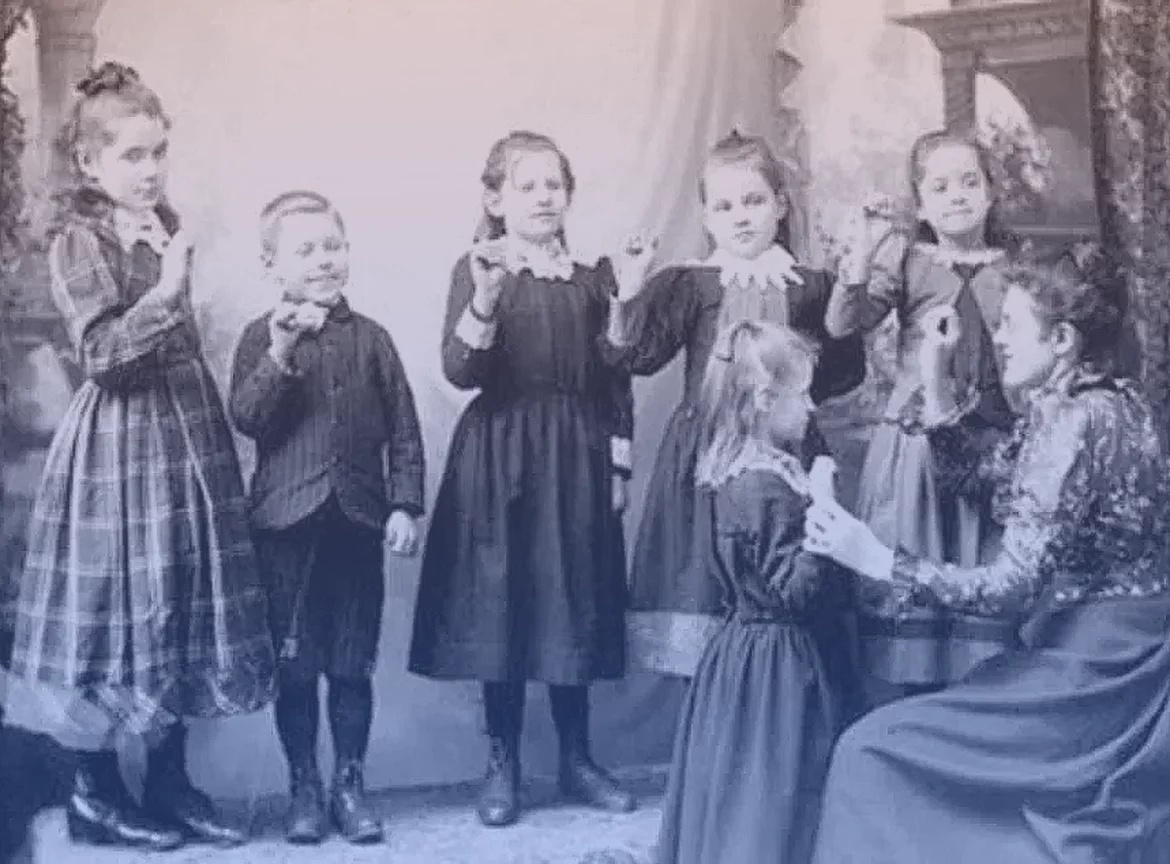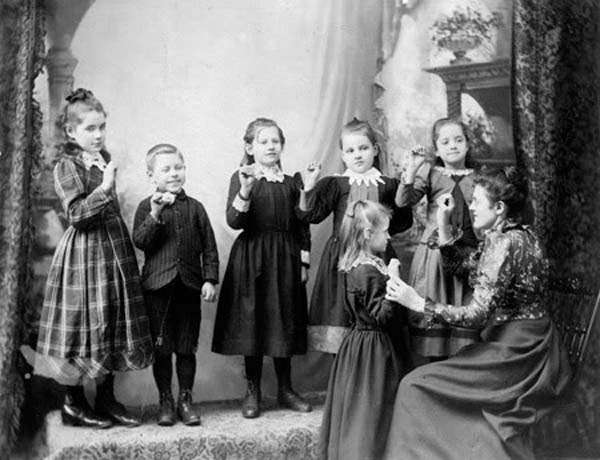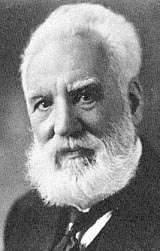During the 19th century, deaf Vineyarders made up a disproportionate number of people born on the island in southeastern Massachusetts.
One in every 155 people on Martha’s Vineyard was born deaf. Elsewhere in the United States, it was close to 1 in 6,000. In the town of Chilmark, deaf Vineyarders comprised one out of 25 people. But within Squibnocket, a village of Chilmark, they formed 25 percent of the population. .
The deaf Vineyarders were born with no other anomalies than total deafness. Their deafness was believed the result of a recessive gene traced to Kent County in England, where some Martha’s Vineyard settlers had originated in the late 17th century. Some came from an area in Kent called the Weald. Intermarriage probably contributed to the spread of deafness.
The 1st Deaf Vineyarders
The first known deaf Vineyarder was Jonathan Lambert, who arrived in 1694. Two of his seven children were deaf. Lambert came to the island using what was probably a regional sign language from Kent.
Deaf islanders developed their own sophisticated sign language, used by both the deaf and the hearing.
Deaf people weren’t considered disabled. They were completely integrated into island life. Deaf people owned farms, ran businesses and served in town government.
If you wanted to live in Chilmark, you pretty much had to learn Martha’s Vineyard Sign Language.
In the late 19th century, the number of deaf Vineyarders began to fall as more people married people from away. The last person who used the Vineyard’s sign language died in 1952.
Martha’s Vineyard Sign Languaage merged with mainland signs to form American Sign Language.
Alexander Graham Bell
Alexander Graham Bell conducted genealogical research on the deaf Vineyarders, trying to isolate the cause of deafness.
He opposed the use of sign language, believing it set deaf people apart. Bell also thought it isolated them from the rest of humanity and promoted intermarriage – which produced more deaf people.
He believed in eugenics. Once he said, “Those who believe as I do, that the production of a defective race of human beings would be a great calamity to the world, will examine carefully the causes that lead to the intermarriages of the deaf with the object of applying a remedy.”
Bell instead promoted oralism – teaching deaf people to speak and to read lips, or speech-read.
As Bell’s fame spread, he traveled the country preaching the gospel of oralism.
He succeeded. But many consider Bell to have done a great disservice to deaf people.
Parents of deaf children who didn’t teach them sign language deprived them of the ability to start learning . That however, was not the case when parents used sign language with a deaf baby. Deaf children taught oralism developed language slower, which thus impeded their mental development.
Eventually deaf children with deaf parents who used sign language were found to do better academically than deaf children with hearing parents.
Today, many deaf advocates say sign language for deaf children is a human rights issue.
This story about deaf Vineyarders was updated in 2023.



8 comments
[…] fell in love with Martha’s Vineyard. One year after that first visit, he rocketed to fame on NBC’s Saturday Night Live. His wild […]
[…] He persuaded Gorges he could show him a gold mine on Martha’s Vineyard. […]
[…] brilliant inventor Alexander Graham Bell found his greatest success with the telephone, but perhaps his highest profile effort at inventing […]
[…] little nine-year-old Alice pulled him in the direction that made them both beloved heroes to the deaf community. Alice, at age two, had lost her hearing as the result of […]
[…] Alexander Graham Bell, the inventor of the first practical telephone, hired Emma away from a telegraph office. She was paid $10 per month for a 54-hour workweek, though she did get an hour for lunch. She supposedly remembered every number in the New England Telephone Company directory. […]
[…] and brightest young people to have children. He called it ‘stirpiculture’; others called it eugenics. That’s when the community began to have trouble, because parents wanted to raise their own […]
[…] 1801 Jonathan Grout built an optical telegraph system on the telegraph hills between Edgartown on Martha’s Vineyard and Dorchester Heights in Boston. Grout, a Revolutionary veteran, had served in the first U.S. […]
[…] Alexander Graham Bell wowed the crowds by demonstrating his telephone at the Exposition. The biggest attraction, though, was the steam engine invented by Providence’s George Corliss. The engine was a mammoth piece of equipment that powered the 14 acres of machinery at the fair. […]
Comments are closed.